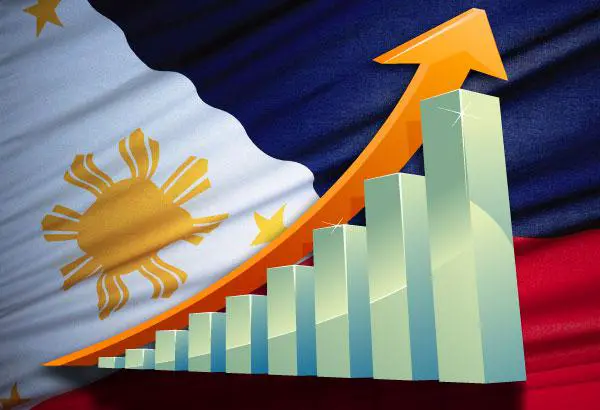By APD writer Melo M. Acuna
MANILA, Dec.14(APD) –“Despite external and domestic headwinds in 2018, the Philippine economy became stronger and even more resilient that ever,” thus said Socioeconomic Planning Secretary Ernesto M. Pernia in a year-end event for the media.
He said the Philippine economy “has been on a roll” as it grew by at least 6 percent for 14 consecutive quarters, “the strongest economic growth we have seen since the mid-1970s.”
Despite the GDP growth at 6.3 percent and slower than the 6.8 percent growth recorded for the same period last year, the country continues to be among the best performing economies in the region.
He admitted there lies more work to do because among the factors that has slowed down the overall economic growth for the first three quarters of 2018 include the lower agricultural output and softened household consumption due to accelerated increase in price, particularly food.
“This reflects less optimistic consumer sentiment despite strong labor data,” he claimed. He said the economy needs to expand by at least 7.0 percent in the fourth quarter to attain the low-end of 6.5 to 6.9 percent revised GDP growth target for 2018.
He admitted it is a “tall order” but the government remains committed to reaching the revised growth target for the year of 6.4 to 6.9 percent.
Secretary Pernia said the government’s economic managers have begun implementing anti-inflationary measures to bring down prices of key agricultural commodities including rice, fish, meat, vegetables, and fruits, all of which significantly contributed to overall inflation.
“We expect inflation to normalize in the medium term,” he said as the Rice Tariffication Bill nears its enactment. He claimed with the Act being enforced, rice prices will be reduced by P 7.00 a kilo. This claim, however, has been dismissed by farmers, consumer groups and think-tanks which they said would even increase market prices.
The National Economic and Development Authority (NEDA) which Secretary Pernia heads works closely with the economic team, particularly the Bangko Sentral ng Pilipinas BSP) to tighten monetary policy to curb inflationary pressures particularly on the demand side. It has been reported the BSP projects inflation to average at 5.2 percent this year and to ease in 2019 to 3.2 percent.
Aside from the looming enactment of the Rice Tariffication Act, Secretary Pernia counts the passage of the Ease of Doing Business Act in May 2018 and the signing of Executive Order No. 65 promulgating the Eleventh Regular Foreign Investment Negative List to boost the country’s business competitiveness as “victories.”
He said unemployment went down to 5.3 percent which is within the target for the year as labor participation for women improved to 47 percent though it remains behind target. “Discouraged jobseekers declined to 11.5 percent, which was better than target. He added figures out of employment and education declined to 19.9 percent which he said as within target.
Some 826,000 jobs generated in Fiscal Year 2018 “which is slightly below the government’s low-end target.”
Speaking of the Duterte Administration’s Build, Build, Build, Secretary Pernia said the government’s efforts will pay off as improvements in the state of the country’s infrastructure will be seen in the medium term.
“Thirty-five out of 75 infrastructure flagship projects have been approved by NEDA Investment Coordination Committee or ICC and confirmed by the NEDA Board. They have a total investment requirement of P 1.54 trillion,” he added.
He expressed hope 31 projects will be approved by the NEDA Board as recommended by the ICC with 31 projects up for completion in 2022 while 44 other projects will be completed beyond the Duterte Administration though the implementation. Several projects will be implemented this year.
Looking forward, Secretary Pernia said the global growth is expected to slow down beginning 2019 as the external environment “seems to be less supportive of our country’s potential economic growth in 2019.”
However, he said the Philippine economy’s resilience this year will continue over the medium term.
The country’s economic performance will be “robust despite domestic and external risks,” he explained. With the Philippines’ hosting of the 30th Southeast Asian Games in 2019, he said he expects a livelier tourism sector next year.
He added they at NEDA will continue to press for the needed reforms mentioned in the Philippine Development Plan as he appealed to Congress to pass the amendment of the Public Service Act, Universal Health Care Bill, Coconut Levy Bill as well as the National Land Use Act.
“We urge Congress to pass the 2019 budget at the soonest possible time. We need this to make sure that we are on tract of meeting our development targets,” he explained.
(ASIA PACIFIC DAILY)
 简体中文
简体中文

